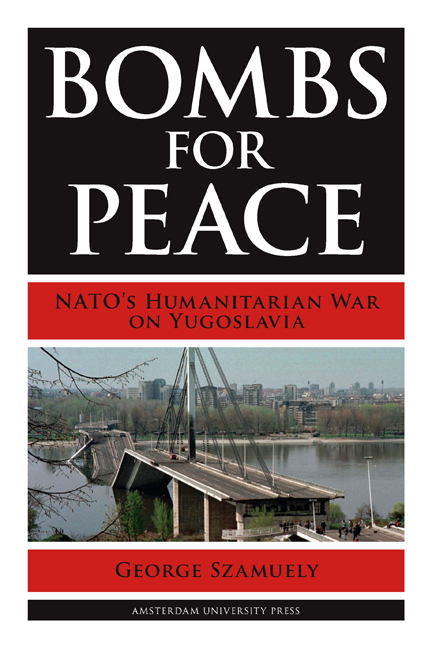Book contents
- Frontmatter
- Dedication
- Contents
- Acknowledgements
- Introduction
- 1 Yugoslavia: Destroying States for Fun and for Profit
- 2 In Search of the Good War: Bosnia: April 1992 to May 1993
- 3 Peacemaking v. Humanitarianism: Bosnia and Croatia: June 1993 to December 1995
- 4 Humanitarianism Fulfilled: Bosnia’s Unsafe Areas
- 5 Kosovo: The Denial of Sovereignty
- 6 Kosovo: The set-up
- 7 Kosovo: Standing up to the Yugoslav Goliath
- Conclusions: Ensuring Success by Lowering Standards
- Notes
- Select Bibliography
- Index
- Frontmatter
- Dedication
- Contents
- Acknowledgements
- Introduction
- 1 Yugoslavia: Destroying States for Fun and for Profit
- 2 In Search of the Good War: Bosnia: April 1992 to May 1993
- 3 Peacemaking v. Humanitarianism: Bosnia and Croatia: June 1993 to December 1995
- 4 Humanitarianism Fulfilled: Bosnia’s Unsafe Areas
- 5 Kosovo: The Denial of Sovereignty
- 6 Kosovo: The set-up
- 7 Kosovo: Standing up to the Yugoslav Goliath
- Conclusions: Ensuring Success by Lowering Standards
- Notes
- Select Bibliography
- Index
Summary
I know how difficult this is, and what I am about to say may sound melodramatic, but history could well hang in the balance tonight. I truly believe that you may never take any decision as public officials more important than this one. Give us bombs for peace. Give us a resumption of the bombing by morning.
On March 19, 2011, Great Britain, France and the United States began bombing Libya. The action had become necessary, the nato powers claimed, because Libya was on the brink of a humanitarian catastrophe. The government of Colonel Muammar Qaddafi was about to crush armed rebel forces based in the town of Benghazi and heavy casualties were expected. As justification, the Western powers cited u.n. Security Council Resolution 1973. Adopted a few hours before the start of the bombing, the resolution called on u.n. member states “to take all necessary measures … to protect civilians and civilian populated areas under threat of attack.” The resolution didn't actually say that such “measures” would include bombing, but there was never any doubt that this was how the Western powers would interpret their mandate.
Governments that a few years earlier had invaded Iraq in defiance of a u.n. refusal to authorize such an action now espoused humanitarianism and solemn compliance with u.n. resolutions. We had to act, President Obama explained in a televised address to the nation on March 28. If we had “waited one more day, Benghazi … could suffer a massacre that would have reverberated across the region and stained the conscience of the world.” The bombing mission had been undertaken solely in order to save lives. Regime change was most definitely not on the agenda:
If we tried to overthrow Qaddafi by force, our coalition would splinter. We would likely have to put U.S. troops on the ground to accomplish that mission, or risk killing many civilians from the air … To be blunt, we went down that road in Iraq. Thanks to the extraordinary sacrifices of our troops and the determination of our diplomats, we are hopeful about Iraq's future. But regime change there took eight years, thousands of American and Iraqi lives, and nearly a trillion dollars. That is not something we can afford to repeat in Libya.
- Type
- Chapter
- Information
- Bombs for PeaceNATO's Humanitarian War on Yugoslavia, pp. 13 - 42Publisher: Amsterdam University PressPrint publication year: 2013



